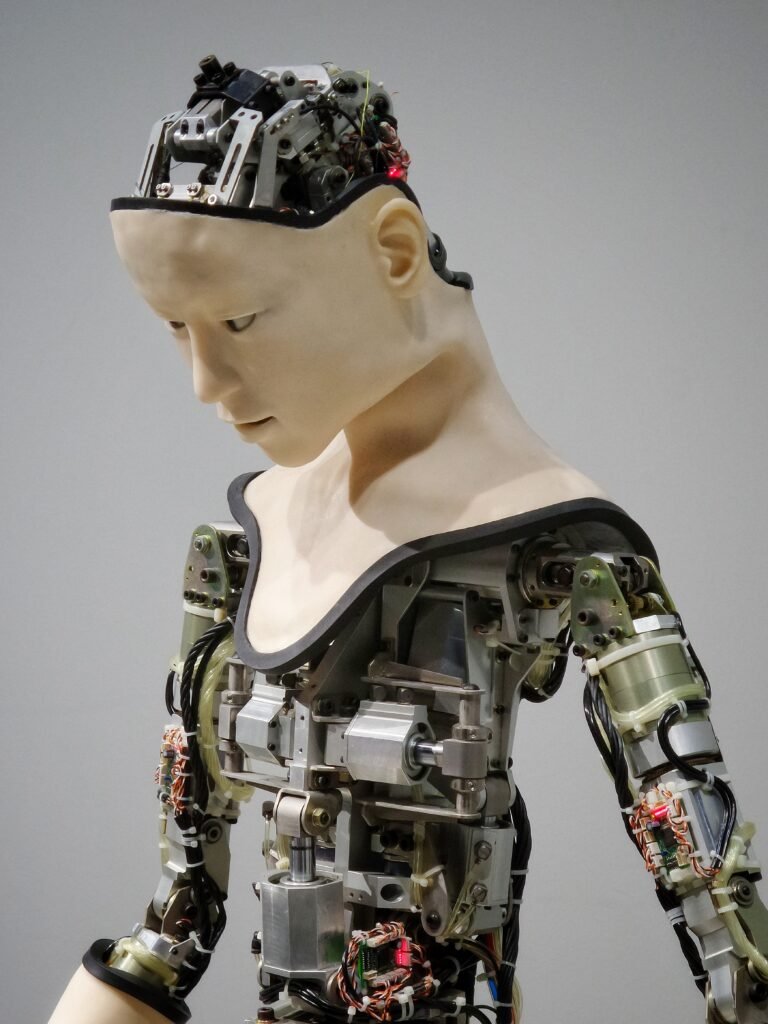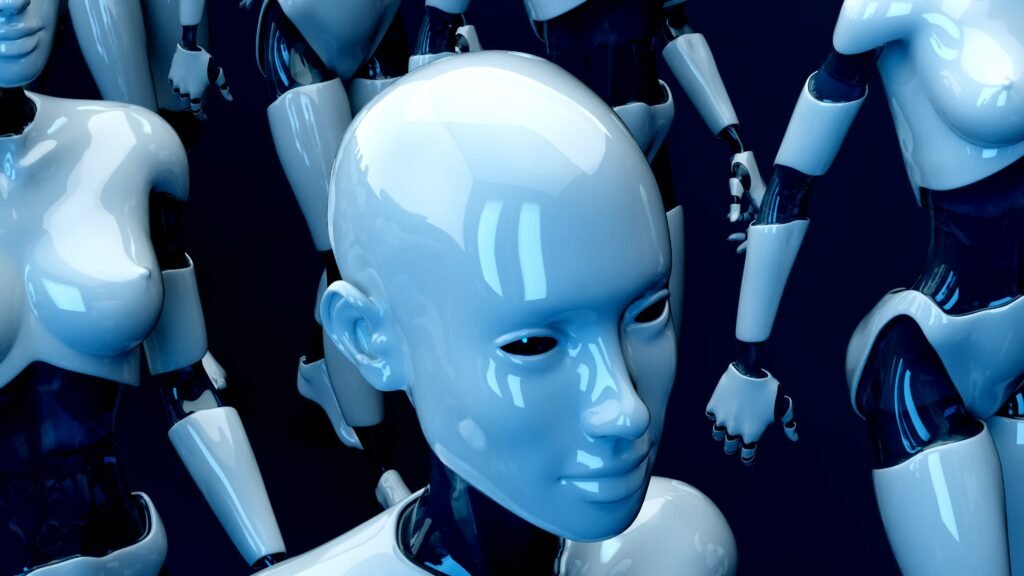Imagine a world where machines can understand and learn from their surroundings, making decisions and solving problems just like humans do. This is the fascinating realm of artificial intelligence (AI). In this article, we will explore the concept of AI, unravel its mysteries, and discover the incredible potential it holds for reshaping various aspects of our lives. So, get ready to embark on a journey into the realm of AI and uncover the marvels that await.
What Is Artificial Intelligence
Artificial Intelligence (AI) is a rapidly evolving field of computer science that focuses on the development of intelligent machines capable of performing tasks that typically require human intelligence. These tasks can include speech recognition, decision-making, problem-solving, learning, and even understanding and translating natural language. AI aims to create systems that can mimic human cognitive abilities and provide intelligent solutions to complex problems.
Definition of Artificial Intelligence
Artificial Intelligence can be defined as the branch of computer science that deals with the creation and development of intelligent machines able to perform tasks without human intervention. These machines can process and analyze vast amounts of data, recognize patterns, make judgments based on the given information, and adapt their behavior accordingly. In simpler terms, AI is the pursuit of creating machines that can think, reason, and learn like humans.
History of Artificial Intelligence
The concept of Artificial Intelligence goes back several decades. The origins of AI can be traced back to the 1950s, with the groundbreaking work of computer scientist Alan Turing and his famous “Turing Test.” This test was designed to determine if a machine could exhibit intelligent behavior indistinguishable from that of a human. Turing’s work laid the foundation for the field of AI and sparked significant interest and research in the years to come.
In the 1950s and 1960s, researchers made significant progress in developing machine learning algorithms and logic-based approaches to problem-solving. However, progress was slow and limited due to the limitations of computing power and the lack of sophisticated algorithms. The field saw significant advancements in the 1980s and 1990s with the development of neural networks and the availability of more powerful computers. This led to the emergence of expert systems and the beginning of AI applications in various industries.

Types of Artificial Intelligence
Artificial Intelligence can be broadly categorized into two main types: Narrow AI and General AI.
-
Narrow AI: Narrow AI, also known as Weak AI, refers to AI systems that are designed to perform a specific task or a limited range of tasks. These AI systems excel at specific applications, such as image recognition, natural language processing, or playing chess. Narrow AI is the most commonly used form of AI today and is driven by machine learning techniques, which allow the system to learn and improve from data.
-
General AI: General AI, also known as Strong AI or Artificial General Intelligence (AGI), refers to AI systems that possess the same level of intelligence and understanding as humans. General AI would be capable of performing any intellectual task that a human being can do. However, the development of General AI remains a significant challenge, and scientists are still far from achieving this level of artificial intelligence.
Applications of Artificial Intelligence
The applications of Artificial Intelligence are vast and diverse, encompassing various industries and fields. AI has penetrated numerous sectors and is transforming how businesses operate and how people interact with technology. Here are some notable applications of AI:
-
Healthcare: AI is revolutionizing healthcare by enabling early disease detection, medical imaging analysis, personalized treatment plans, and even robotic surgeries. AI-powered systems can analyze vast amounts of patient data, identify patterns, and provide valuable insights to healthcare professionals, ultimately improving patient outcomes and reducing medical errors.
-
Finance: AI has found extensive applications in the finance industry, including algorithmic trading, fraud detection, credit scoring, and risk assessment. Machine learning algorithms can analyze financial data in real-time, identify market trends, and make data-driven investment decisions, enhancing financial performance and minimizing risks.
-
Transportation: AI is driving innovation in the transportation sector, with the development of autonomous vehicles and smart traffic management systems. Self-driving cars rely on AI algorithms to perceive their surroundings, make real-time decisions, and navigate safely. AI-enabled traffic management systems can analyze data from sensors and cameras, optimize traffic flow, and reduce congestion.
-
Customer Service: AI-powered chatbots and virtual assistants are transforming customer service by providing instant responses to customer queries and assisting with various tasks. Natural language processing enables these systems to understand and respond to human language, providing personalized and efficient customer support around the clock.

Benefits of Artificial Intelligence
The adoption of Artificial Intelligence brings numerous benefits and opportunities to society and businesses. Some key benefits of AI include:
-
Increased Efficiency: AI-powered systems can automate repetitive and time-consuming tasks, leading to increased productivity and efficiency. This allows humans to focus on more complex and creative tasks, thereby improving overall workflow and achieving better outcomes.
-
Enhanced Accuracy: AI systems can process vast amounts of data and derive valuable insights, reducing the chances of human error. Machine learning algorithms continually learn from data, refining their performance and achieving higher levels of accuracy over time.
-
Improved Decision-Making: AI systems can analyze complex data sets and provide valuable insights for decision-making. These insights enable businesses to make data-driven decisions, identify trends, and predict outcomes, leading to more informed and effective strategies.
-
Personalization: AI enables personalized experiences by analyzing user data and preferences. From personalized recommendations on streaming platforms to tailored marketing campaigns, AI enhances user satisfaction by delivering targeted and relevant content.
Challenges of Artificial Intelligence
Despite the numerous benefits, Artificial Intelligence also poses several challenges and concerns that need to be addressed. Some significant challenges include:
-
Data Privacy and Security: The increasing use of AI systems requires extensive data collection and processing, raising concerns about data privacy and security. Proper safeguards and regulations must be in place to protect sensitive data from unauthorized access and ensure ethical use of personal information.
-
Job Displacement: As AI systems automate tasks traditionally performed by humans, there is a concern about job displacement and the impact on the workforce. Reskilling and upskilling programs need to be implemented to equip individuals with new skills that can complement AI technologies.
-
Ethical Concerns: The development and use of AI raise ethical considerations, such as biased algorithms, lack of transparency, and potential misuse of AI for malicious purposes. It is crucial to establish ethical guidelines and frameworks to ensure the responsible and unbiased use of AI technologies.
-
Limited Understanding: The complexity of AI systems often makes it difficult to understand how they arrive at their decisions. This lack of transparency raises concerns, especially in critical domains such as healthcare and finance, where explainability is essential.

Ethical Considerations in Artificial Intelligence
Artificial Intelligence poses several ethical considerations that need to be addressed to ensure responsible and beneficial use of these technologies. Some key ethical considerations include:
-
Bias and Fairness: AI systems are only as unbiased as the data they are trained on. Biased training data can result in discriminatory outcomes, reinforcing societal biases. Addressing bias and ensuring fairness is crucial to prevent AI from perpetuating social inequalities.
-
Transparency and Explainability: AI systems should provide explanations for their decisions and actions, especially in critical domains where human lives are at stake. Transparent and explainable AI helps build trust and accountability, enabling users to understand and verify the system’s reasoning.
-
Privacy and Consent: AI systems often rely on extensive data collection, raising concerns about privacy and consent. It is essential to respect individuals’ privacy rights and obtain informed consent when using personal data for AI applications.
-
Accountability and Responsibility: As AI systems become more autonomous, questions arise about accountability and responsibility for their actions. Establishing clear lines of responsibility and liability is crucial to address potential issues and ensure appropriate measures are in place.
Future of Artificial Intelligence
The future of Artificial Intelligence is exceptionally promising, with immense potential for advancement and innovation. As technology continues to evolve, AI is expected to play a vital role in shaping various aspects of our lives. Some key developments that can be anticipated in the future include:
-
Advancements in Deep Learning: Deep learning, a subset of machine learning, will continue to evolve, leading to more advanced neural networks capable of learning and understanding complex patterns. This will enable AI systems to make more accurate predictions and perform sophisticated tasks.
-
Increased Human-Machine Collaboration: The future of AI lies in collaboration between humans and machines. AI systems will complement human abilities and empower individuals to make better decisions, perform tasks more efficiently, and unlock new levels of creativity and innovation.
-
Ethical AI: The focus on ethical AI will intensify, with more emphasis on fairness, transparency, and accountability. Efforts will be made to address biases, ensure explainability, and establish legal and regulatory frameworks that guide the development and deployment of AI technologies.
-
AI for Social Good: AI will continue to be harnessed for social good, addressing global challenges, such as healthcare, climate change, poverty, and education. AI-powered solutions have the potential to revolutionize these domains and create a positive impact on society.
Artificial Intelligence vs. Human Intelligence
While Artificial Intelligence has made significant advancements, it still falls short of human intelligence in many aspects. Human intelligence is characterized by complex emotions, creativity, moral reasoning, and common sense understanding, which AI has yet to fully replicate. However, AI systems excel in processing vast amounts of data, performing repetitive tasks, and making accurate predictions, which humans may struggle with.
The relationship between AI and human intelligence is complementary rather than competitive. AI systems can augment human capabilities, providing valuable insights and assistance in various domains. Through collaboration, humans can leverage AI technologies to amplify their own abilities and tackle complex problems more effectively.
Conclusion
Artificial Intelligence is a rapidly evolving field that holds immense potential to transform various industries and improve our daily lives. From healthcare to finance, transportation to customer service, AI has already made significant strides and will continue to shape our future in profound ways.
As AI continues to advance, it is vital to address the associated challenges and ethical considerations. Ensuring fairness, transparency, and accountability in AI systems will be crucial in establishing trust and avoiding unintended consequences. By harnessing the power of AI responsibly and ethically, we can unlock its full potential to create a better world for all.






